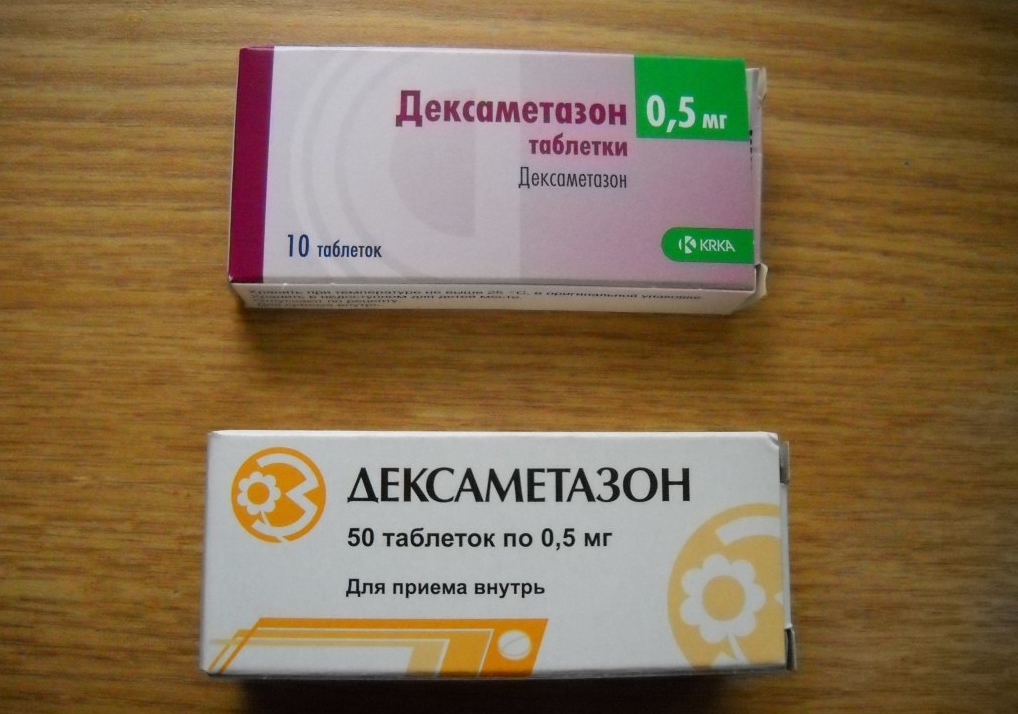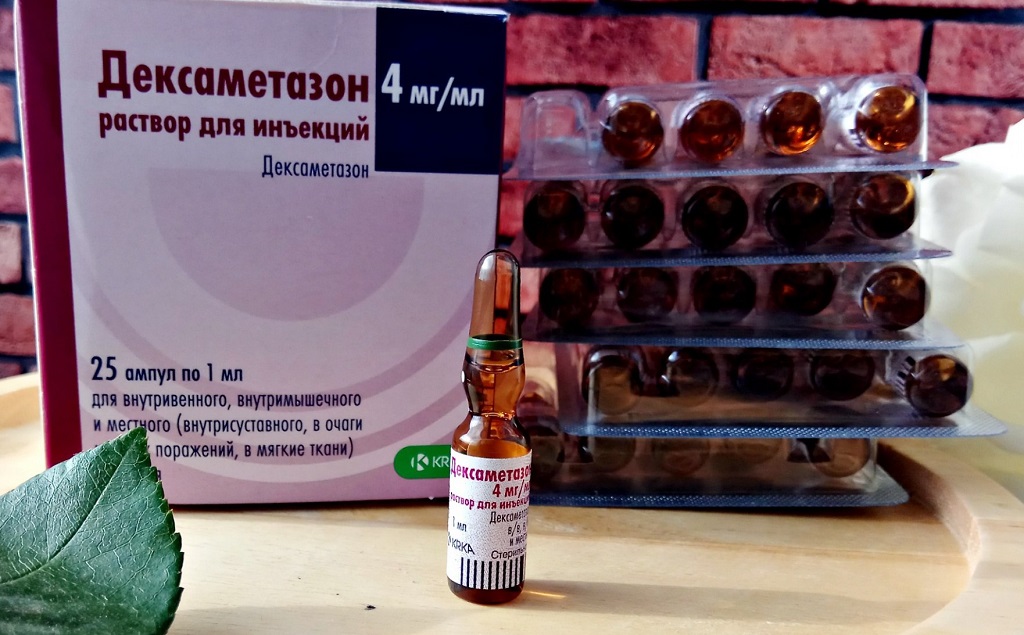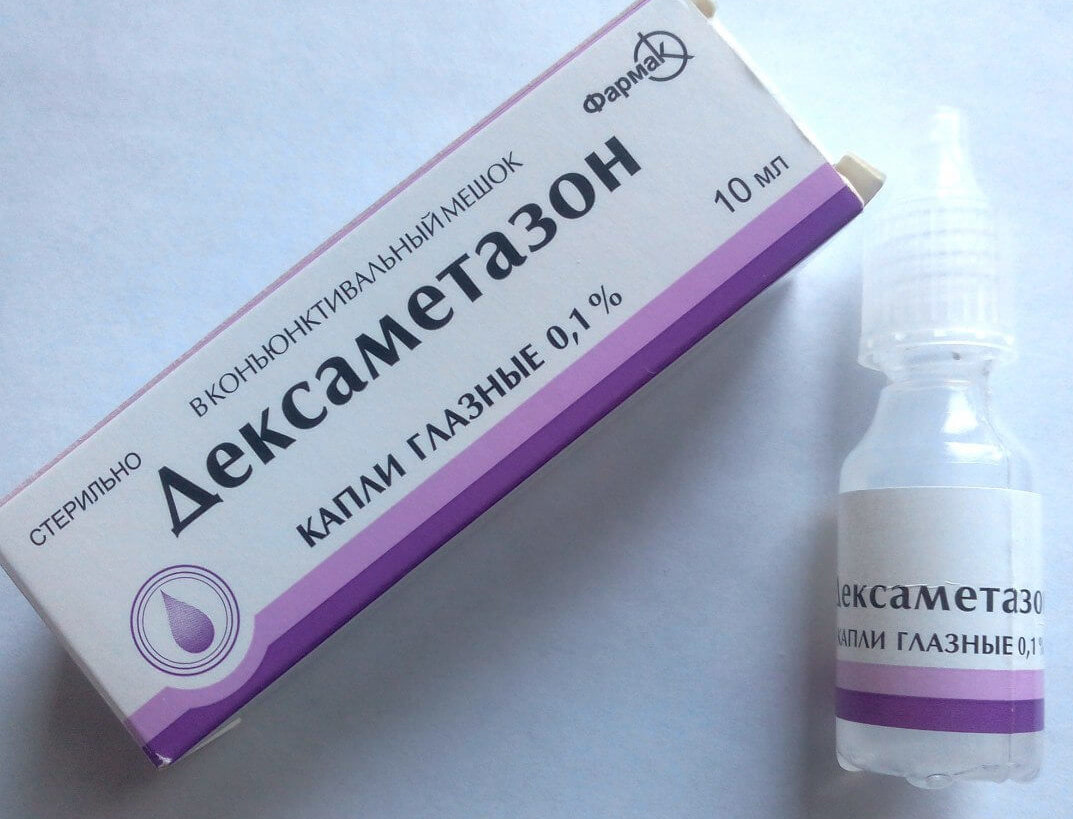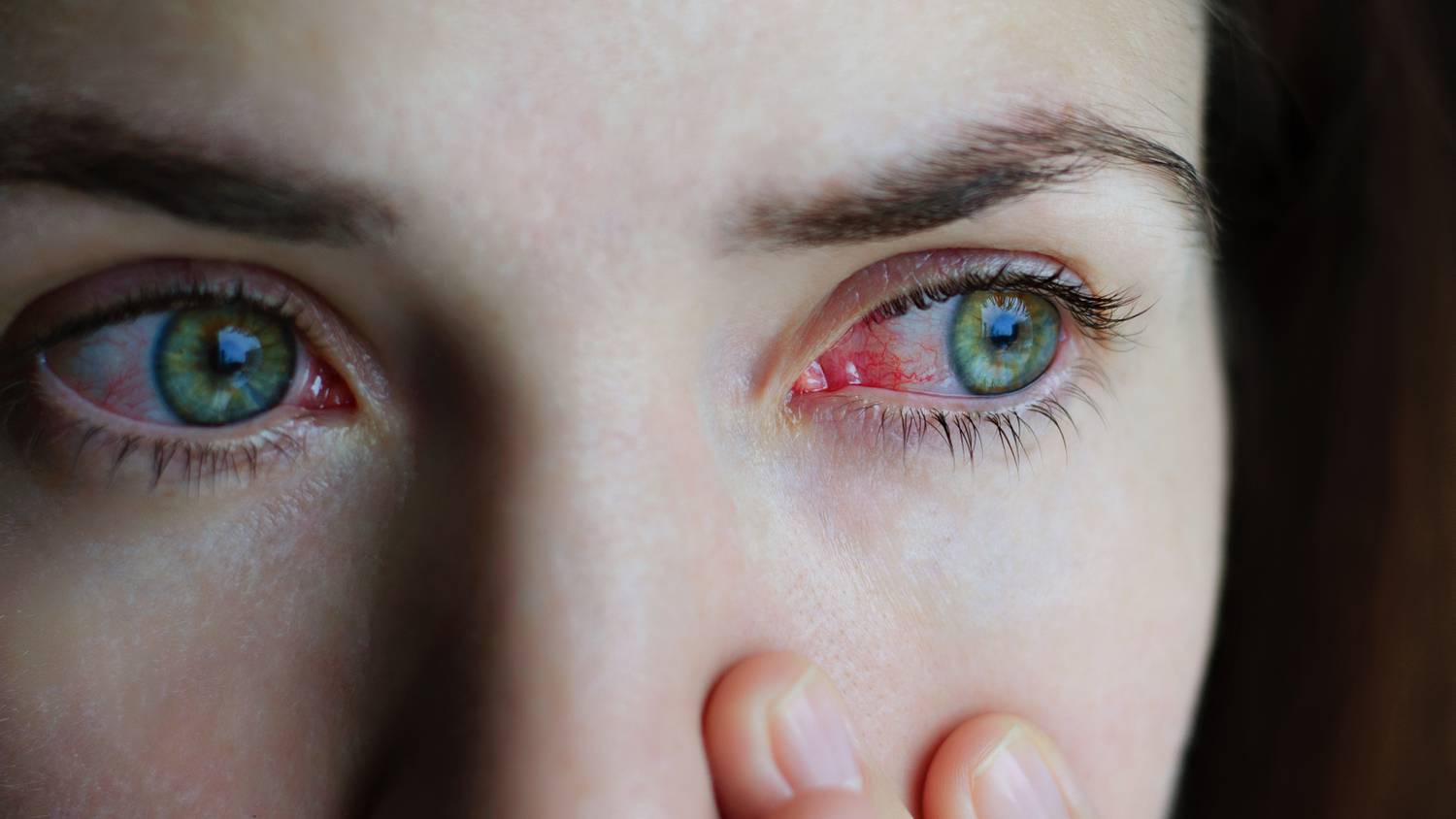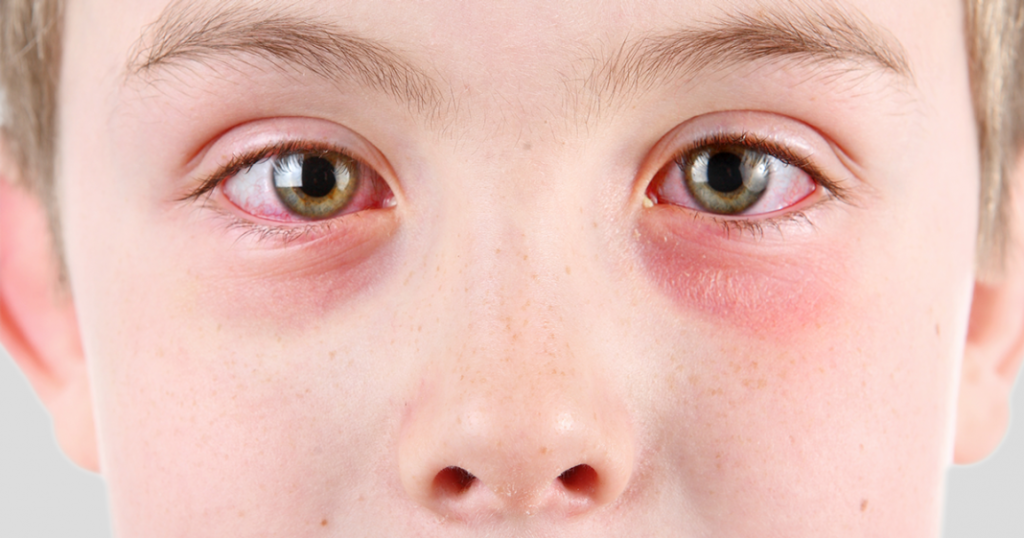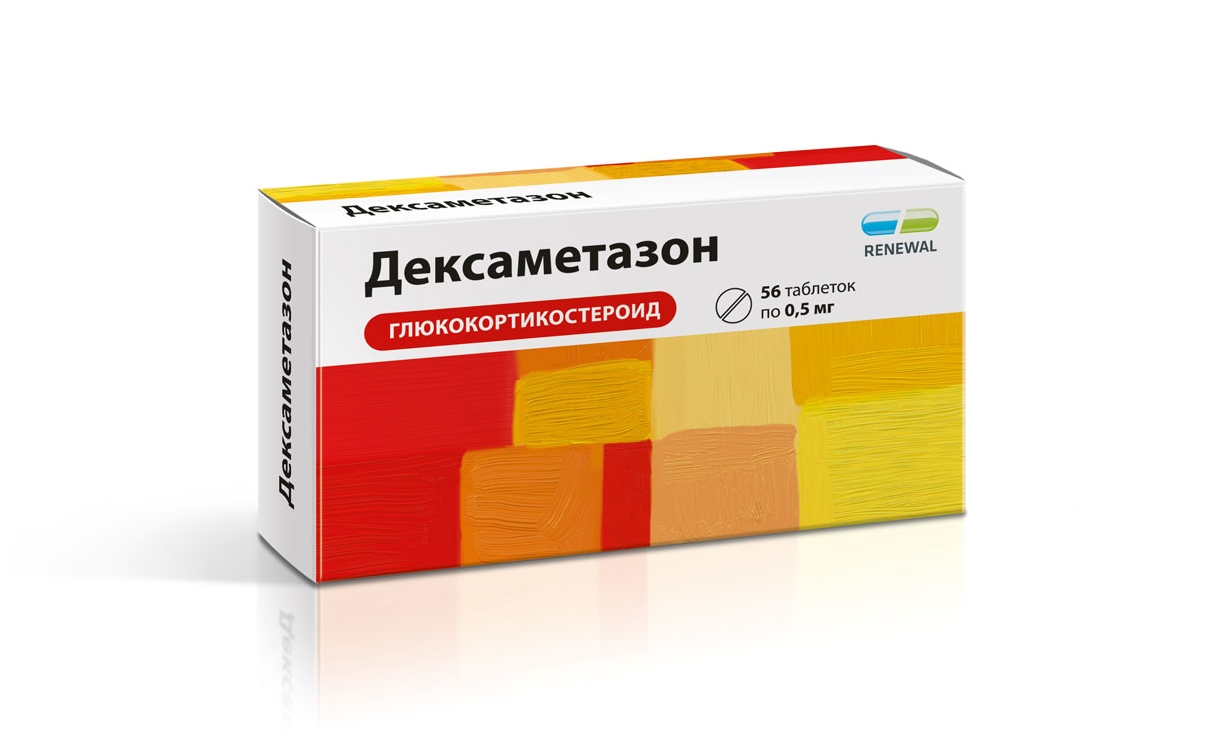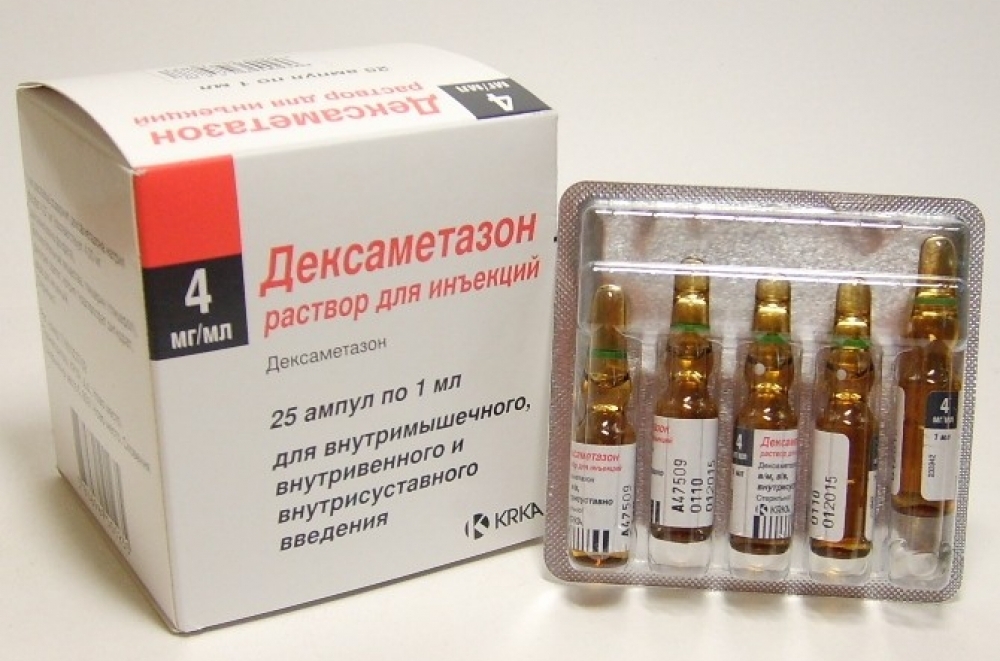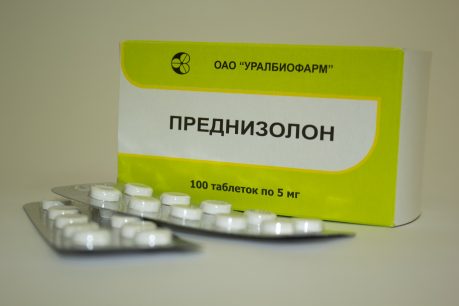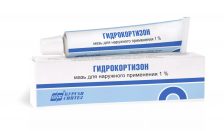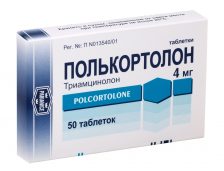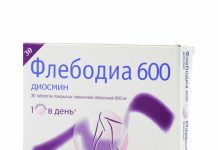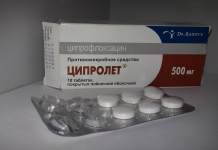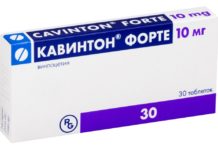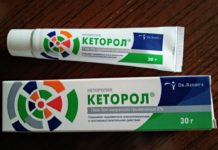Dexamethasone is a hormonal drug that has been widely used in medicine. It is prescribed for the treatment of various diseases. The drug has a pronounced anti-inflammatory, decongestant, anti-allergic effects. However, against the background of many side effects, Dexamethasone is used strictly as directed by a doctor.
Material Content:
Forms of release and their composition
Instructions for use indicate that Dexamethasone is a domestic glucocorticosteroid, which is available in the following forms:
- 0.5 mg tablets;
- 4 mg injection solution;
- eye drops 0.1%;
- 2.5 g ophthalmic ointment
At the heart of all forms of Dexamethasone is one active substance, dexamethasone, in addition to which, the drug has auxiliary components that do not have a therapeutic effect on the body.
Dexamethasone tablets consist of the following ingredients:
- magnesium stearate;
- silica;
- croscarmellose sodium;
- MCC.
Dexamethasone injections consist of the following substances:
- glycerin;
- water for injection;
- edetate disodium;
- phosphate solution;
- propylene glycol.
Drops consist of boric acid, water for injection, preservatives, sodium tetraborate.
On a note! The active substance of Dexamethasone is a synthetic glucocorticosteroid, similar to the natural hormone produced by the adrenal cortex.
Side effects and contraindications Dexamethasone
Side effects in adults are similar to an undesirable reaction on the part of the child's body. But they vary according to what form of Dexamethasone the patient is being treated.
Pills
Dexamethasone tablets can lead to a negative reaction from various body systems in the form of:
- nausea
- intestinal bleeding;
- pain in the abdomen;
- heartburn;
- blood stool;
- acute pancreatitis;
- hepatic lesions;
- adrenal insufficiency;
- menstrual irregularities;
- deterioration in diabetes;
- sharp weight gain;
- Depression
- insomnia
- convulsive syndrome;
- hearing impairment;
- visual impairment;
- Dizziness
- psychosis
- increase in intracranial pressure;
- irritability;
- dry skin;
- acne;
- itching
- skin rashes;
- sexual dysfunction;
- bronchospasm.
In addition, against the background of prolonged treatment with Dexamethasone in tablets, thinning of the skin is possible.
Injection solution
With a single treatment with an injection of Dexamethasone, usually no side effects are manifested. If the treatment is carried out in high doses and in a long course, then the development of a large number of side effects is possible.
Against the background of a single administration of a large dosage of Dexamethasone, the following may occur:
- vomiting
- nausea;
- arrhythmia;
- collapse;
- decreased immune response from the body.
With prolonged treatment with an injectable solution of Dexamethasone, the development of:
- diabetes mellitus;
- amenorrhea;
- impotence;
- pancreatitis
- menstrual crashes;
- pancreatitis
- steroid stomach ulcers;
- gastric bleeding;
- increase in appetite;
- impaired digestion;
- bloating;
- hiccups;
- hepatic impairment;
- dystrophy of the heart tissue;
- myocardial necrosis;
- high blood pressure;
- thrombosis
- disorientation;
- psychosis
- hallucinations;
- headache;
- swelling of the optic nerve;
- visual impairment;
- depressive state;
- convulsive syndrome;
- glaucoma
- osteoporosis;
- joint pain;
- rash
- itching.
Dexamethasone is usually administered intravenously. If intramuscular injection is indicated, then burning, soreness, numbness of the injection site are possible.
Dexamethasone eye drops (ear)
Dexamethasone eye drops usually give side effects with long-term use.
The following reactions from the body are the most common:
- increased intracranial pressure, which exacerbates open-angle glaucoma;
- disturbed nutrition of the cornea, its thinning.
If side effects arose as a result of short-term treatment with drops, then the body disorders are unstable and are manifested as follows:
- dry eyes;
- lacrimation;
- redness
- a feeling of "sand";
- fungal, viral infection;
- glaucoma
- cataract.
So that unwanted reactions from the body do not develop, treatment with drops is carried out for a week. If the course must be extended, then the supervision of a doctor is required.
Eye ointment
As a result of treatment with eye drops, unwanted reactions from the body may develop in the form of:
- optic nerve disorders;
- lens opacities;
- increased intracranial pressure;
- headache;
- swelling of the eyes;
- hyperemia;
- delayed healing of a wound against a burn of the eye, its injury;
- perforation of the cornea;
- accession of bacterial, viral, infectious diseases.
If any adverse reaction occurs, it is necessary to stop treatment with ointment and consult a doctor about the dosage of Dexamethasone or its replacement.
Short-term administration of Dexamethasone is contraindicated only with an allergic reaction to the active substance.
It is not allowed to be treated with a medicine for a long course with the following ailments:
- infectious, bacterial, fungal diseases;
- immunodeficiency;
- before vaccinations;
- osteoporosis;
- myasthenia gravis;
- an ulcer;
- diabetes mellitus;
- renal failure;
- psychosis.
Ear drops can not be used with a broken eardrum.
Possible effects of alcohol intake
In view of the increased negative effect on liver and kidney cells, heart tissue, it is not recommended to take Dexamethasone in any form and alcoholic beverages at the same time. Otherwise, against the background of taking GCS, a deterioration in the condition as a result of the accumulation of toxins is possible.
Instructions for use
The instructions for use describe in detail the methods of taking Dexamethasone depending on the form of the drug. Injections of the hormonal drug can be put in a dropper, injected into the muscle. Therapy should be carried out with a minimum dose, which will give the desired result, and in a short course. Typically, injections are given in a critical condition and, if it is impossible to take the drug in tablets. With the improvement of well-being, the patient is transferred to oral use of Dexamethasone. If you need long-term treatment with a hormone, you need to conduct a regular blood test.
On a note! With oncology, supportive treatment with Dexamethasone is possible for a week.
The doctor is responsible for prescribing the dosage of Dexamethasone in tablets. For adults, the average dose per day is not more than 9 mg. If necessary, it can be increased to 15 mg. The maximum daily dosage is divided into 3 doses.
For children, Dexamethasone is prescribed according to the strict indications of a doctor. If necessary, the drug can be used even for a baby. In this case, the pediatrician calculates the exact dose of the drug based on the weight and age of the baby. The maximum allowable dosage is divided into 3 doses.
Eye, ear drops are allowed to drip up to 5 times a day for 1-2 drops. After removing the inflammation, allergy therapy continues for 4 days. In this case, the drops drip three times a day, one at a time. Chronic diseases can be treated within a month. Therapy of children should not last more than 10 days with a frequency of use of a drop up to three times a day.
On a note! People who wear contact lenses should take them off before instilling a drop. Lenses may be worn after 15 minutes.
Dexamethasone eye ointment is placed in the conjunctival sac three times a day with the same diseases as the drug in drops. The course of treatment should not exceed 20 days. In childhood, ointment can be used from 6 years of age.
Contraindications during pregnancy and lactation
During pregnancy, dexamethasone is not recommended for use. Since its active substance penetrates through the placental barrier in the fetus. The drug can cause pregnancy fading, the death of the unborn baby.
If there is a threat to life for the expectant mother, then Dexamethasone is administered in the minimum dose in a short course. Moreover, immediately after childbirth, a special control is made for the child to exclude renal dysfunction.
It is undesirable to treat the mother with Dexamethasone during the period of breastfeeding. Since the active ingredient easily penetrates with breast milk and harms an immature baby. If necessary, treatment with a hormonal drug should be transferred to the baby formula. During breastfeeding with Dexamethasone in drops, ointment is allowed to be treated for no more than a week.
GKS analogs
As hormones of Dexamethasone, other hormonal drugs are used to treat the same diseases. But you need to carefully approach this issue, since substitutes may have a greater number of side effects. Usually, a replacement is made if the original gives an undesirable reaction from the body or is contraindicated for use.
Most often, the following medications are recommended as analogues of Dexamethasone:
- Prednisolone;
- Hydrocortisone;
- Polcortolone;
- Budesonide;
- Betamethasone;
- Methylprednesolone;
- Alclomethasone.
Usually, all glucocorticosteroids have identical readings.But different types of hormones can have individual dosage forms. Therefore, in order to choose the most suitable type of drug and its dosage, consult your doctor.
Dexamethasone is a modern hormonal drug that can quickly relieve inflammation, an allergic reaction, and stop bronchospasm.


